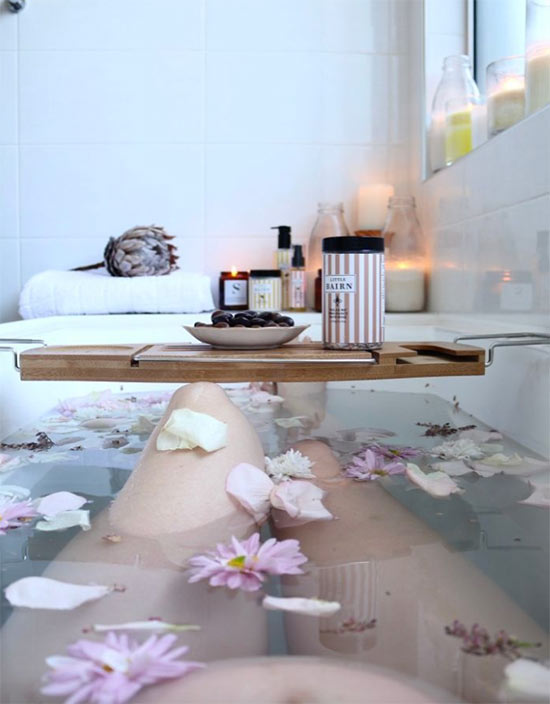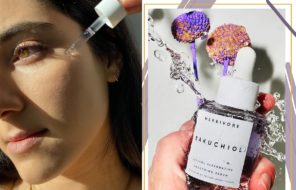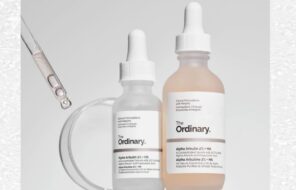Welcome to the beautiful yet complex world of pregnancy skin care, and everything you need to know about it!
Envision the word pregnancy. Hold it in your mind for a moment. What else comes up? Perhaps a beautiful, curvy silhouette with a large belly, or a smiling, glowing face? Pregnancy is certainly beautiful, and many women are so lucky to develop that beautiful pregnancy glow. However not all is glowy and feminine all the time.
During pregnancy, in addition to side effects like morning sickness, increased urination, and fatigue or soreness, many women also deal with increased skin concerns. While the most frequent skin concern is stretch marks on the belly, some women also suddenly experience acne, while others might deal with melasma, a type of skin darkening that occurs especially during pregnancy. At the same time, pregnant women have to be extra careful about what they put on their bodies, so as not to harm their child.
That’s where I come in. We’ll break it down and make it easy for you to figure out the perfect pregnancy skincare routine, will talk about which products you can feel safe using, and which ingredients to avoid during pregnancy. We will also give some advice on avoiding everything, from stretch marks to treating breakouts and hyperpigmentation.
In this article:
- Pregnancy Skin Care Safety: Ingredients to Avoid During Pregnancy
- The Ideal Pregnancy Skincare Routine
- Skincare Products and Treatments for Pregnancy Breakouts
- Pregnancy Skin Care to Prevent Melasma/ Pigmentation
- How to Avoid Stretch Marks During Pregnancy
- Safe Makeup Products for Pregnant Women
- DIY and Natural Pregnancy Skin Care Remedies
- Pregnancy Skincare Tips & Tricks
Pregnancy Skin Care Safety: Ingredients to Avoid During Pregnancy
I think it’s best to start with pregnancy skin care safety tips – after all, your and your baby’s safety are the most important things. There is a lot of misinformation on what is safe and what isn’t for pregnant women, but I dug deep and found all of the nuances.
Some frequently maligned ingredients actually pose no risk, while others pose a risk only when used a certain way (or simply overused). If you stumble a few times during the pregnancy, even with some of the more serious ingredients, your baby will likely still be okay, since most of the risks come from continuous use of a specific ingredient, which can lead to accumulation in the body.
Pregnant women should pay close attention before using skincare products with the following ingredients:
- Products rich in essential oils require care, especially in the first trimester when they should be totally avoided. While most essential oils are safe in small quantities later on in the pregnancy, you absolutely must avoid the essential oils of arnica, aniseed, basil ct. Estragole (other basils are fine), camphor, hyssop, mugwort, parsley, pennyroyal, sage (clary sage is fine), tansy, tarragon, thuja, wintergreen, and wormwood.
- Different kinds of vitamin A, but especially retinol and tretinoin, which can cause deformities. Weaker forms like retinyl palmitate don’t pose as much of a risk, and are likely safe to use, although you might want not to use them on a daily basis.
- Beta hydroxy acid, which is more commonly listed as salicylic acid has a low risk of causing birth defects when taken orally (i.e. aspirin). At 2%, when applied topically, it is likely safe to use, but you might want to limit how often you use it. Alpha hydroxy acid, which also shows up as AHA, lactic acid, or glycolic acid, has not been studied, but is considered as safe in the quantities used in cosmetics.
- Hydroquinone has a high absorbency rate, and it is unclear what its effect would be on a fetus. As such, it is better to avoid this completely in your skincare products during pregnancy.
- If you have melasma, and are beginning to experience pigmentation during your pregnancy, avoid soy-based ingredients, like lecithin and phosphatidylcholine.
- Avoid all hair dyes.
- Avoid nail polish that contains toluene, since overexposure to it can cause birth defects. Using nail polish every once in a while, in a well-ventilated area is fairly safe, but if you’re a nail technician you might be at risk.
- You might choose to avoid the ingredients considered worrisome by the Environmental Working Group (an independently lobbying body), like parabens, formaldehyde donors, phthalates, synthetic dyes, and synthetic fragrances.
- Triclosan is an antibacterial agent often found in liquid hand soaps and toothpastes. You may also see it in anti-acne skincare products. Triclosan in large quantities has been found to harm fetus development, and it is also responsible for antibiotic resistance, so it is best to avoid it altogether.

The Ideal Pregnancy Skincare Routine
Even during pregnancy, it is important to stick to a consistent skincare routine that will keep your skin at its healthiest. Also think of this as potentially your last chance to truly luxuriate in taking care of your skin, since you likely will not have enough time for an involved skin care routine once your baby arrives.
While different women deal with different concerns during pregnancy, this basic pregnancy skincare routine can be adapted to any skin type.
Evening
- If you wear makeup during the day, begin by removing it with a makeup remover or your favorite botanical oil. Follow that up with a gentle facial cleanser that won’t strip your skin of essential moisture. Make sure the cleanser has a low pH, because an alkaline cleanser can irritate the skin and cause breakouts.
- A toner or hydrating mist is an optional step, if you feel that your skin is dehydrated and needs the extra moisture.
- Optional serum time, when you can deal with pesky pregnancy related (or unrelated) skin issues. If you are battling with hyperpigmentation during your pregnancy, quite a few skin-brightening ingredients are perfectly safe during pregnancy, including azelaic acid, vitamin C, or niacinamide. You can also use serums rich in anti-aging or soothing ingredients, as long as you avoid vitamin A.
- Spot treatment is another optional step that is especially important if you are dealing with acne and breakouts during pregnancy. While it is best to use a cream prescribed by a doctor and confirmed to be safe for pregnant women, your doctor might also suggest topical products like benzoyl peroxide or salicylic acid.
- To limit overexposure to either ingredient, you can only use a spot treatment on the areas you break out, and you can alternate using benzoyl peroxide one night, and salicylic acid the next. If you are nervous about either of these ingredients, you can choose to use a product with willow bark extract, which is similar to salicylic acid but is much weaker. Another excellent alternative for pregnancy acne is sulfur.
- Finish off by moisturizing! You can still use the same face moisturizer you used before getting pregnant, although the hormonal changes that come with pregnancy might change your skin. If your skin gets oilier, switch to a lighter moisturizer. If your skin has become more dehydrated or dry, you can opt for a more nourishing moisturizer.
Daytime
- Using a cleanser is an optional step in the morning. You can choose the same light cleanser you use in the evening.
- Wipe your face with a hydrating toner or with micellar water, to remove the sweat and excess sebum that your skin produces over night.
- Like in the evening, an optional step is to apply a serum to target any specific concerns you might have. You can apply a serum just at night, just in the morning, or both. However, it is better to avoid acne spot treatments in the morning, to limit their use.
- Since your skin is going to be much more prone to hyperpigmentation during pregnancy, a moisturizer with a sunscreen is extremely important. If you are nervous about the chemicals frequently found in face sunscreens, you might prefer a moisturizer with mineral sunscreen ingredients like titanium dioxide and zinc oxide.
Once a Week
- After cleansing, you should exfoliate your skin, especially if you decided not to use acid-based exfoliants during your pregnancy. The key is to use a gentle scrub that won’t cause microtears in the skin (I’m looking at you, St. Ives!), and that doesn’t contain environmentally destructive plastic microbeads.
- t’s very important to mask the skin. While masking is not a very high impact skin care habit, it has a big effect on the mood. Taking the time every week to yourself, to just lie back with a luxurious mask on your face will train you to take care of yourself, a habit that will hopefully last during your pregnancy. Additionally, it helps you stay happy, relaxed, and healthy, which will also have an amazing effect on your baby! For extra bonus points, put on some classical music in the background, and maybe light an aromatic candle.
- Choose a clay-based mask if your skin has become oilier, or a moisturizing mask if your skin is on the drier side. You can also choose a mask to target specific skincare concerns. My favorite DIY option, which is good for all skin types, is simply slathering honey all over my face and leaving it on for about 15 minutes.
- Once you’re done with the mask, rinse it away and follow it up with the rest of your pregnancy skincare routine.
Skincare Products and Treatments for Pregnancy Breakouts
During pregnancy our body begins to produce totally different hormones, including androgen, which is responsible for making human oil glands more active. This is why many women’s skin becomes oilier during pregnancy, and why they end up experiencing pregnancy breakouts.
For the most part, popular over-the-counter acne treatments are probably totally fine as part of a pregnancy skincare routine, since they do not penetrate too deeply into the skin and will not reach the fetus.
However, it is up to the individual to decide what they feel safe using, so if you want to avoid salicylic acid or benzoyl peroxide completely, gentler, natural alternatives do exist. You may also choose to find ways to use these products conservatively, so only as spot treatments, or on alternating days. The most important thing is regularly cleansing and moisturizing the skin with gentle, light products.
You can also talk to your doctor about light therapy for acne. Light at different wavelengths can penetrate through the skin and trigger healing, without having any adverse effects on the rest of the body. In combination with a good and gentle pregnancy skincare routine, it could certainly help fight pregnancy related acne.
Pregnancy Skin Care to Prevent Melasma/ Pigmentation
Those same changing hormones that occur during pregnancy that lead to breakouts, can also contribute to melasma. Melasma is a type of hyperpigmentation that mostly afflicts the skin on the face, and is often referred to as a “pregnancy mask”.
Melasma manifests as dark patches of skin anywhere on the face, but especially on the forehead, cheeks, chin, upper lip, and nose. While melasma is hereditary, things like sun exposure can certainly make it worse. For some women, it will fade after pregnancy, but for others, the dark patches may stay.
Treating melasma is very similar to treating other forms of hyperpigmentation. While you should avoid the most commonly recommended ingredient, hydroquinone, there are many other effective skin lighteners, which can come in the form of a toner, serum, or moisturizer.
Azelaic acid is frequently recommended, as are products rich in vitamin C or niacinamide. Additionally, wearing sunscreen and reapplying regularly will prevent melasma from worsening.
Once the pregnancy is over, and you are no longer breastfeeding, you can target any leftover hyperpigmentation with stronger ingredients like hydroquinone, retinol, or acid peels.
How to Avoid Stretch Marks During Pregnancy
Stretch marks are a really frequent side effect of pregnancy. They occur as the skin suddenly and rapidly expands (which makes sense, you’re growing a whole ‘nother person inside you!).
Stretch marks actually occur below the top layers of the skin, in the dermis. As the skin expands, layers of collagen in the skin tear, showing up on the surface of the skin looking like tiger stripes (rawr!).
While it is difficult to completely prevent stretch marks from showing up, since a big part of them is genetic and physical, there are some products you can use to prevent them.
One very important part is to regularly moisturize your belly, preferably with the kind of product that has skin repairing botanical oils and humectants. A moisturizer will strengthen the epidermis, or the top layer of the skin, and keep it more supple and elastic. Even if some stretch marks do occur, they are less likely to be visible through a healthy top layer of skin. I have some awesome stretch mark cream recommendations coming up in a bit.
Just as crucial is that what you eat will also keep your skin strong and supple. You want to consume nutrients that will do so by improving collagen and elastin production in the skin. The main vitamins and nutrients that do that are vitamin C (which when applied topically, can help with pigmentation), vitamin E, vitamin B2, vitamin B3 (which is also known as niacin, and is amazing when applied to the skin!), zinc, and silica. These nutrients naturally occur in lots of healthy fruits, veggies, and plant oils, but you can also talk to your doctor about taking them as supplements.
Once the pregnancy is over and you have finished breastfeeding, you can tackle stretch marks with more powerful things like retinol, dermarolling, and laser treatments.
Safe Makeup Products for Pregnant Women
The ingredients that require care during pregnancy are much more ubiquitous in skin care than in makeup. Additionally, makeup does not usually penetrate through the skin the way creams and lotions do, so even if it does contain some worrisome ingredients, they are seriously unlikely to make it into your body and to your baby.
Even so, read the ingredients list for the makeup products you use, and make sure it is free of ingredients contraindicated for pregnancy.
DIY and Natural Pregnancy Skin Care Remedies
If you are very fussy, or choosing to scale back the amount of different things you put on your skin, going the all natural route for your pregnancy skin care might be the way to go. While you should skip the store-bought sunscreen, you can definitely mix some of your own preparations at home.
- Cleanse your skin with botanical plant oils to avoid preservatives and surfactants. For oily skin, choose a light oil like grape seed oil or cold pressed sunflower oil. If your skin is dry or sensitive, coconut oil for skin is a great choice.
- You can also rub your favorite oil on your belly, especially after a shower, to lock in moisture and keep the skin elastic and supple. For best results, make a custom blend of jojoba oil to lock in moisture, coconut oil to soften and nourish the skin, and rosehip oil to repair and strengthen the skin.
- You can custom blend your own masks for a variety of skin benefits!
- For a natural mask to treat acne and excess oil products, mix honey, kaolin clay, turmeric, and a bit of water.
- For dry and sensitive skin remedy, blend honey, yogurt, oatmeal, and a few drops of a nourishing oil (rosehip is my personal favorite), to soothe and hydrate the skin.
- If you are dealing with hyperpigmentation, you need something that has been formulated by a chemist. There are many great natural skin-brightening ingredients, but they need to be at the right pH, right container, and at the right percentage.

Pregnancy Skincare Tips & Tricks
- You might notice a dark line going down the center of your stomach, as it grows. This line is called the linea nigra, and it is normal for the most part. However, if it is especially dark, it might be a sign of folic acid deficiency. Talk to your doctor about it.
- Your doctor is your best friend. If you’re ever in doubt about something, ask a medical professional for advice, and always be completely truthful about what kind of beauty products you are using.
- Avoid heavy-duty salon treatments like acid peel. Light, hydrating facials are perfectly safe not to mention extremely rejuvenating, but make sure to let your aesthetician know that you are pregnant, and which ingredients you are avoiding.
- What you put inside you matters! Keep up a healthy diet, and drink lots of water, and you will both feel and look better, not to mention it will have an effect on the health of your baby.
- Natural products are not always better! Just because something is marketed as natural or hypoallergenic, or any other buzzword, it might still contain ingredients that could harm your child.
Do you have any pregnancy skin care favorites? Any tips you want to share, from your own experience? Let us know!
Photos via @lisaabefelt, Instagram





